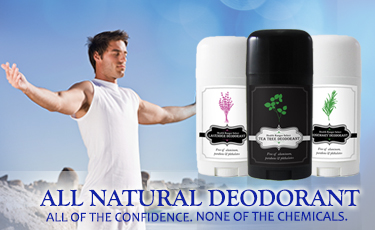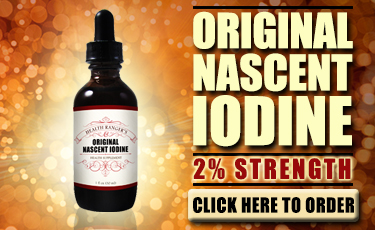They say you never truly appreciate the value of a well-functioning machine until it breaks down. So it goes for your immune system. Its complex network of cells, tissues, and organs protect your body on a daily basis from bacteria, microbes, viruses, and toxins. But if compromised, as when under attack by pathogens or lacking supporting nutrients, the system can become overwhelmed and fail to accomplish the tasks to keep you healthy.
During the winter months, your body’s immune system is presented with greater challenges—it’s the annual time when new, unrecognized pathogens quickly spread from person to person. The standard advice from your doctor is to wash your hands regularly, receive your annual vaccines, and avoid unnecessary contact with those who may carry pathogens. These steps are all effective.
Unfortunately, however, a balanced diet and nutritional support is often overlooked for best immune support. While no nutritional product or supplement can ever prevent you from having allergies, catching a cold or flu, or treat those illnesses or symptoms once you get them, like any of the other bodily organs or systems, a continuous supply of specific nutrients is critical for your immune system to function optimally.
A balanced diet should provide you with all the sustenance your body needs. But studies continue to show that most diets lack vitamins and minerals, such as zinc and vitamin C, which play a special role in our bodies’ immune systems. Special ingredients within food and in supplements also can help your body in its fight against foreign invaders while protecting against their harm. The following seven nutrients and bioactives support your immune system through a variety of ways:
- Zinc, in particular, is a mineral that plays an important role in the function and development of immune cells, specifically, T-cells. Studies have shown that humans and animals deficient in zinc have increased oxidative stress and a compromised immune system (1-7). Even a minor deficiency of zinc has been shown to result in a compromised immune system (1-7). Zinc in the form of gluconate has also been shown to maintain reserves to guard against a compromised immune system.
- Vitamin D affects nearly all your body’s cells, including those in the immune system. During the winter months, however, levels tend to drop in most people (depending on latitude) because they no longer create it from exposure to the sun’s ultraviolet rays. Vitamin D receptors are expressed on immune cells (B cells and T cells) and growing evidence is finding that the hormone-like vitamin plays a key role in balancing immune response (8).
- Vitamin C is closely tied to the immune system. Along with guinea pigs and other non-human primates, humans are not able to produce vitamin C. Instead, we rely on the foods we consume such as kiwi, bell peppers, and citrus fruits. Scientists are speaking up about the suboptimal recommended daily allowance (RDA) of vitamin C, saying that it should be increased to 200 milligrams per day to ensure tissue and cell saturation and promote better overall long-term health (9). This is more than double the current recommendation of 75 milligrams per day for women and 90 milligrams per day for men. Researchers argue that the current RDA levels are based on the prevention of vitamin C deficiency or the disease, scurvy. However, the present recommended level may not be adequate for people to reap the powerful antioxidant benefits of vitamin C that can support the body’s immune system.
- Bovine colostrum is the first form of milk produced by a cow after giving birth. It immediately provides the calf with a host of immune-protecting substances. Research shows that colostrum supplementation in humans may have a similar impact and strengthen immune system defenses (10-12). A good colostrum supplement should have a range of immune-protecting substances within it including immunoglobulins, proline-rich polypeptides, and lactoferrin.
- Echinacea is a flowering plant from the daisy family. The plant’s roots and leaves have been used for centuries by Native Americans for their medicinal qualities. Randomized controlled studies support Echinacea’s beneficial effect on the immune system (13-15).
- Reishi Mushroom (pronounced Ray-She) is commonly consumed in Japan as either a tea or powder and reputed to increase youthful vigor and vitality. Multiple studies have also shown that Reishi mushroom supports the function of the immune system and benefits overall health. What’s more, multiple studies suggest the immunomodulatory effects of reishi mushroom and overall health benefits (15-19).
- A good melatonin supplement can help guard against lack of sleep and poor sleep, helping to keep your immune system functioning nicely. Getting adequate sleep is probably the most important habit to support the immune system. Without proper sleep, the immune system is one of the first things to suffer. In fact, in a study done by Surrey Sleep Research Centre in the UK, researchers evaluated the consequences of one week of insufficient sleep on 26 men in which they found that the men had altered activity of some 700 genes. A number of the genes affected by sleep deprivation included several genes involved in immune system response.
Proactive Measures with Isagenix
When it comes to the immune system, it’s much more effective to be proactive rather than reactive, meaning you should be supporting the immune system every day rather than stepping up care once you are already sick. A healthy diet, along with daily supplementation with Ageless Essentials Daily Pack—containing zinc, and vitamins C and D—can keep your immune system properly nourished daily.Isamune Plus—containing zinc gluconate, colostrum, echinacea, and reishi mushroom—is a convenient spray that can be used daily to bolster defenses. In addition, Isagenix Sleep Support spray provides convenience in a quality melatonin supplement to make getting enough sleep easier nightly. Feel confident that you are protected with the best immune system support with Isagenix this winter.
References
- Hemila H. The Open Respiratory Medicine Journal. 2011 (5):51-58.
- Prasad AS et al. Am J Clin Nutr 2007 Mar; 85(3):837-44.
- Prasad. Zinc: Mechanisms of Host Defense. J Nutr 2007, May; 137(5):1345-9.
- Mossad SB et al. Ann Intern Med 1996;125:81-8.
- Godfrey et al. J Int Med Res 1992;20:234-6.
- Weismann K et al. Dan Med Bull 1990;37:279-81.
- Eby GA et al. Antimicrob Agents and Chemother 1984;25:20-24.
- Aranow C. Vitamin D and the Immune System. J Investig Med. 2011 August; 59(6): 881–886. doi: 10.231/JIM.0b013e31821b8755
- Frei B, Birlouez-Aragon I, Lykkesfeldt J. Authors’ Perspective: What is the Optimum Intake ofVitamin C in Humans? Crit Rev Food Sci Nutr 2012;52:815-29. doi:10.1080/10408398.2011.649149
- Cesarone MR et al.. Clinical and Applied Thrombosis/Hemostasis 2007; 13(2): 130-136.
- Shing CM et al. Effects of bovine colostrum supplementation on immune variables in highly trained cyclists. J Appl Physiol 2007; 102: 1113-1122.
- Crooks CV et al. The effect of Bovine Colostrum Supplementation on Salivary IgA in Distance Runners. Inter J Sport Nutr and Exercise Metabolism 2006; 16: 47-64.
- Noguchi et al. Randomized clinical trial of an ethanol extract of Ganoderma lucidum in men with lower urinary tract symptoms. Asian J Androl. 2008;10(5):777-785.
- Noguchi et al.. Asian J Androl. Jul 2008;10(4):651-658.
- Wachtel-Galor et al. Ganoderma lucidum (“Lingzhi”), a Chinese medicinal mushroom: biomarker responses in a controlled human supplementation study. Br J Nutr. 2004;91(2):263-269.
- Gao et al. Immunol Invest. 2003;32(3):201-215.
- McGuffin eds. American Herbal Products Association’s Botanical Safety Handbook. Boca Raton, FL: CRC Press, LLC 1997.
- Hobbs C. Medicinal Mushrooms. 3rd ed. Loveland (OR): Interweave Press; 1996.
- Tao and Feng. Experimental and clinical studies on inhibitory effect of Ganoderma lucidum on platelet aggregation. J Tongji Med Univ 1990;10:240-3.
- Möller-Levet CS, Archer1 SN, Bucca G, Laing EE, Slak A, Kabiljo R, Lo JCY, Santhi N, von Schantz M, Smith CP, Dijk D. Effects of insufficient sleep on circadian rhythmicity and expression amplitude of the human blood transcriptome. PNAS 2013 Feb 25 doi:10.1073/pnas.1217154110.













 The following book excerpt from The One-Minute Cure – The Secret to Healing Virtually All Diseases by Madison Cavanaugh is reprinted by permission:
The following book excerpt from The One-Minute Cure – The Secret to Healing Virtually All Diseases by Madison Cavanaugh is reprinted by permission: